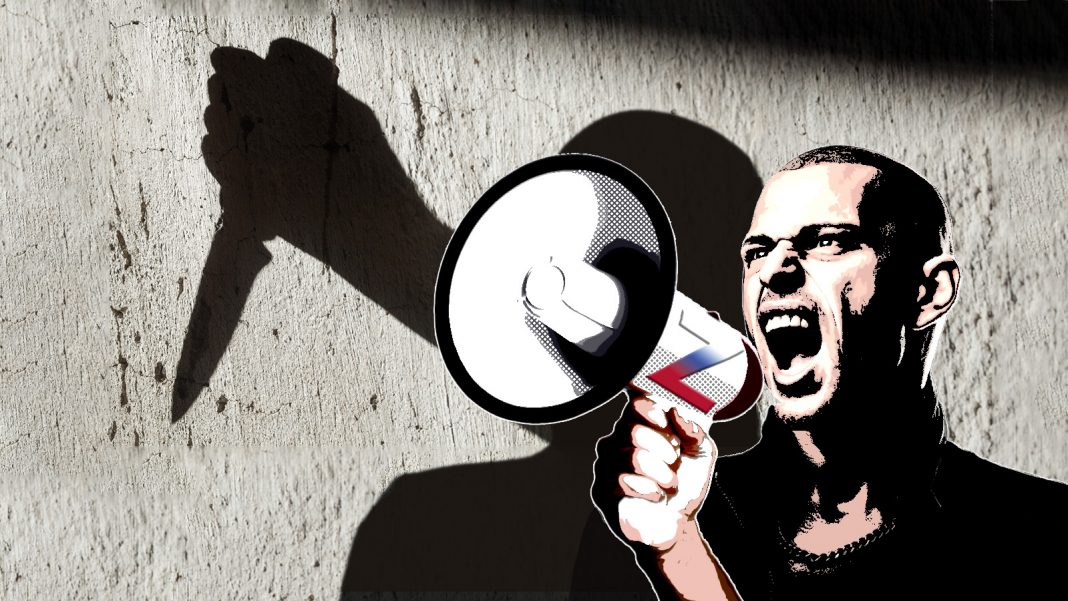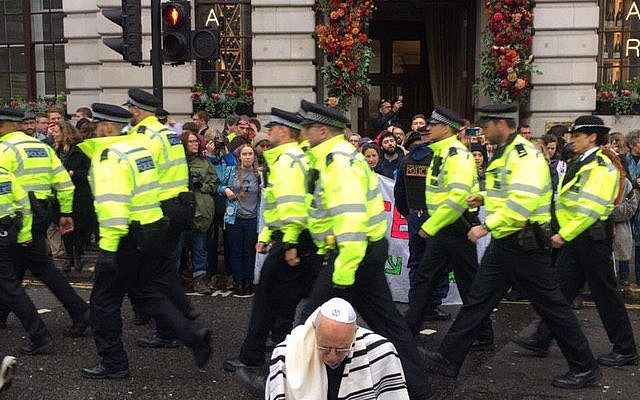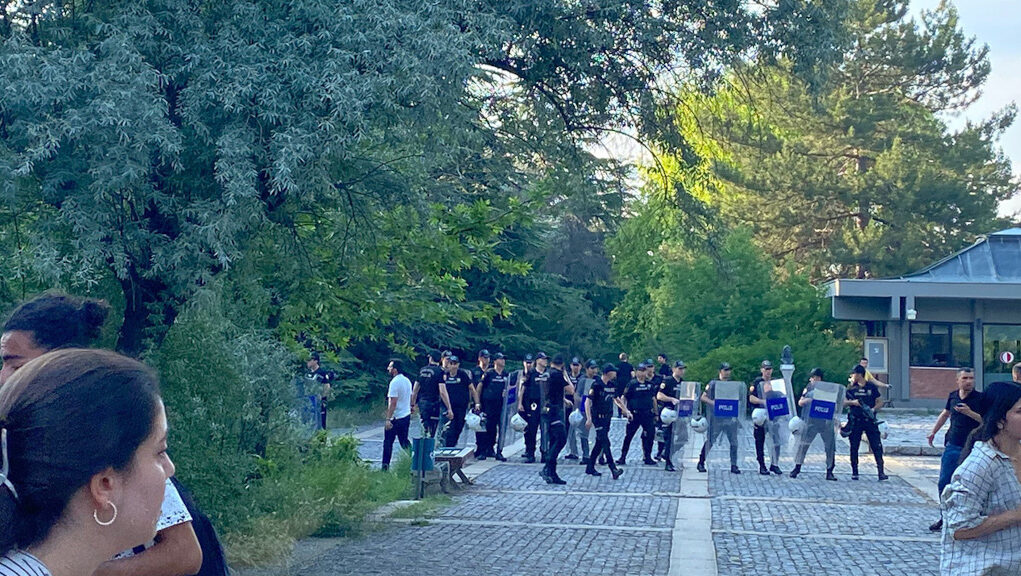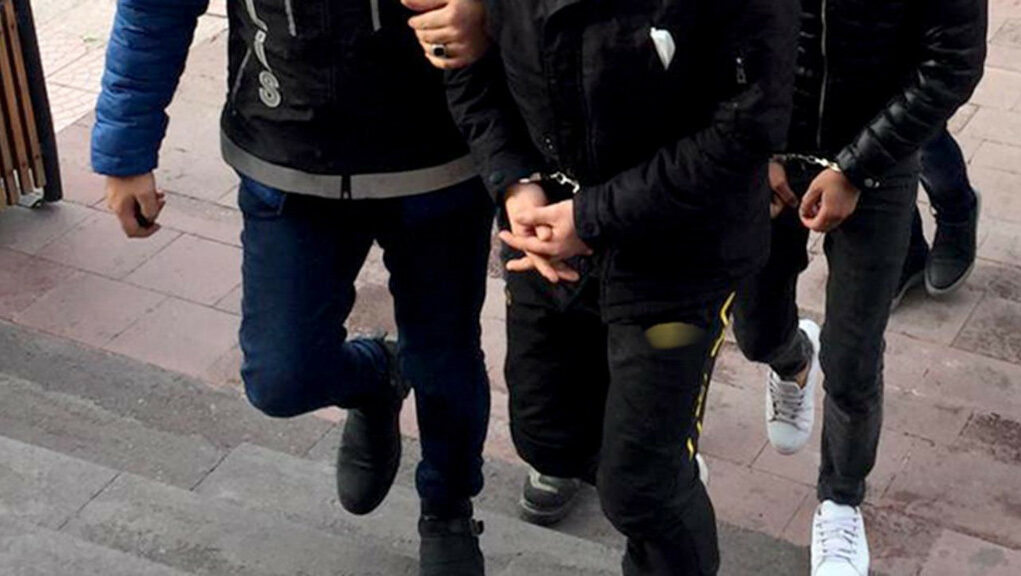Levels of torture and sexual violence used by combatants against women and girls during the 15-year conflict shocked investigators
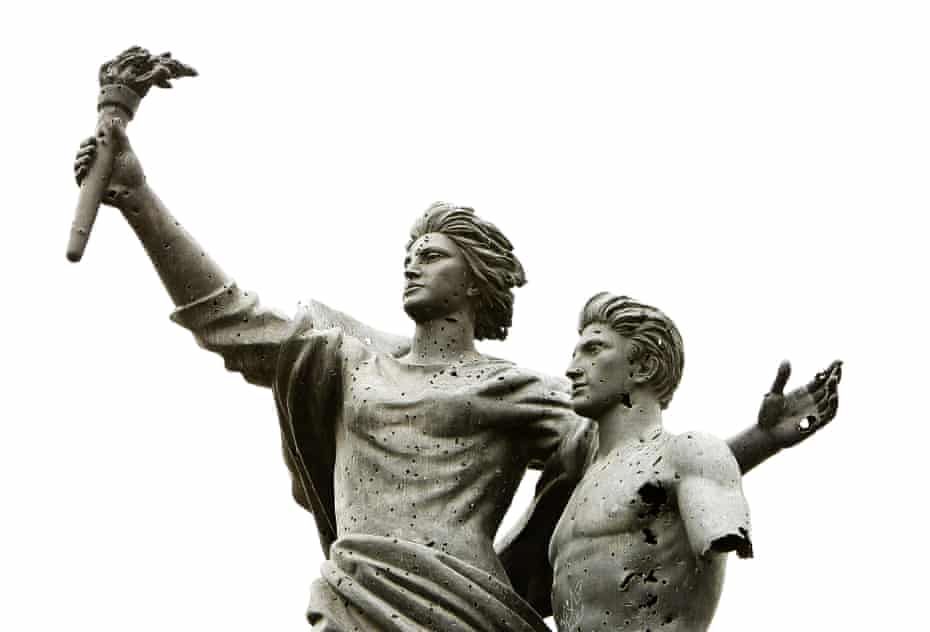
The full scale of the rape, torture and killing of women and girls during Lebanon’s civil war has been revealed after survivors were interviewed about their experiences for the first time in over 30 years.
Testimonies gathered by the human rights organisation Legal Action Worldwide (LAW), documented in a new report, provide evidence of systematic violence against Lebanese and Palestinian women and girls by government forces and militias during the 15-year war, which began in 1975. The conflict saw more than 100,000 people killed and 1 million displaced.
The report details horrific experiences of violence, including gang-rape, electrocution and forced nudity used to persecute women and girls – some as young as nine – from opposing communities.
Many have never spoken about their experiences before because, the women say, “they were never asked”, it added.
Q&A
What happened during the Lebanese civil war?
The passing of a law by the Lebanese parliament in 2018 – ratified two years later – to set up a national commission to investigate the whereabouts of those who disappeared in the war, enabled LAW to begin its investigation. It interviewed women from eight regions and conducted focus groups and surveys to record eyewitness accounts.
Amira Radwan, now 54, witnessed the rape of girls in Kfar Matta, where she lived in 1982. The village was the scene of a notorious massacre of Druze civilians by the Lebanese Forces, a Christian Phalangist militia.
“They used to tie up the father and brother and make them watch the girls being raped,” Radwan said, adding she also knew of women being raped using glass bottles.
As rape was considered to bring shame on the family, women and girls were often ostracised if they spoke of their experiences.
“We suffered a lot from not being able to talk about these crimes that happened,” Radwan said.
An amnesty law passed in Lebanon in 1991 granted immunity for crimes committed against civilians during the war, which has allowed a culture of impunity and lack of accountability to develop, the report noted.
“These women and girls (and family members who witnessed these crimes) are double victims – first the sexual violence inflicted upon them and then the total and utter failure to hold individuals and state agents accountable for these grave violations or even acknowledge what has happened,” states the report.
“We were quite shocked by our findings; we thought we would find sexual violence had taken place on an opportunistic level, but not systematically,” LAW’s executive director, Antonia Mulvey, told the Guardian.
The report calls for crimes against women to be further documented “to counter the male-dominated narrative of the civil wars and amplifying survivor and victims’ voices”, but also recommends that sexual violence against men should be recorded too.
The urgency of the research became more evident, Mulvey said, as the economic situation deteriorated in Lebanon and violent rhetoric increased, raising concerns among women who survived the civil war that the abuse and targeting would happen again if the state collapsed.
The primary aim of the report is to acknowledge the shocking level of sexual violence that took place.
“It is of course painful to bring back these memories but I’m very happy to be talking about this [now] because I think it is important to speak up … in order to spread awareness for new generations,” Radwan said.
The report urges an expansion in provision of legal and psychological services to support victims and survivors of gendered crimes.
STORY JUNE 09, 2022
This is viewer supported news. Please do your part today.DONATE
TOPICS
United Nations special representative on sexual violence in conflict.
Oksana Pokalchuk
executive director of Amnesty International Ukraine.
The United Nations is demanding an independent investigation into charges of rape and sexual assault committed by Russian soldiers in Ukraine since the start of the invasion. We speak with Pramila Patten, the U.N.’s special representative on sexual violence in conflict, who is just back from Ukraine and told the Security Council Monday about multiple shocking reports of rape and assault — all of which Russia has since denied. “We are dealing with a crime which is chronically underreported,” says Patten, who emphasized the need to establish safe spaces for victims to come forward and ensure no perpetrators be granted amnesty through a potential ceasefire or peace agreement. We also speak with Oksana Pokalchuk, executive director of Amnesty International Ukraine, whose organization is investigating the alleged war crimes.
Transcript
This is a rush transcript. Copy may not be in its final form.
AMY GOODMAN: The United Nations is demanding an independent investigation into charges of rape and sexual assault committed by Russian soldiers in Ukraine. Pramila Patten, the U.N. special representative on sexual violence in conflict, told the U.N. Security Council Monday about an increasing number of reports of sexual abuse and human trafficking. On Monday, Patten addressed both the U.N. Security Council and the U.S. Institute of Peace.
PRAMILA PATTEN: We have all heard the accounts of horrific acts of sexual violence, reports of gang rape, rape in front of family members, sexual assault at gunpoint, women who have become pregnant as a result of rape, as well as the reports of refugee women and children being exploited by traffickers and predators who view this turmoil not as a tragedy but as an opportunity to abuse the vulnerable. …
We have debunked the insidious myth that sexual violence in conflict is inevitable. Now we must demonstrate, through proactive protection and empowerment efforts, that it is indeed preventable.
It is time to move from best intentions to best practice to catch the women and girls who may otherwise fall through our safety nets. Let us not forget that while the eyes of the world are on the Ukrainian women and girls who are caught in the crossfire, who are living in terror in occupied territories, and who have been deported or forced to flee their homes and homeland, they are looking to us. We must not and cannot fail them.
AMY GOODMAN: Russia has rejected the accusations that its troops committed sexual violence in Ukraine. This is Vassily Nebenzia, Russia’s ambassador to the U.N.
VASSILY NEBENZIA: [translated] The ratcheting up of accusations of Russian service personnel committing crimes of a sexual nature since the very beginning of our special military operation in Ukraine has become a favorite tactic of the Kyiv regime and our Western colleagues. We all recall how in the Ukrainian and Western media, and also in this room, our soldiers were repeatedly accused of sexual violence with reference to certain reports containing allegedly reliable data. However, no evidence was provided.
AMY GOODMAN: We’re joined now by two guests. Pramila Patten, the U.N. special representative on sexual violence in conflict, she recently returned from Ukraine. Also with us, Oksana Pokalchuk, she is executive director of Amnesty International Ukraine. She’s been investigating war crimes by Russian forces since the full-scale invasion began at the end of February.
Pramila Patten, let’s begin with you. You’re just off your address to the U.N. Security Council. Talk about what you found in Ukraine.
PRAMILA PATTEN: Well, you will all recall that it was only a few days after the Russian invasion of Ukraine that the first reports of sexual violence began to surface. And as the conflict passes the 100-day mark, unfortunately, we continue to receive reports of sexual violence.
I was in Ukraine from the 1st to the 5th of May, and I also went to Poland and Moldova. I did not meet with victims of sexual violence in Ukraine — I was in Lviv and Kyiv — for obvious reasons: security. But I met with civil society organizations who were frontline service providers who have engaged with victims. I also met with families of victims. And, of course, I met with government officials and signed a cooperation agreement.
But what I can tell you is that the reports — credible reports — from civil society organizations, but also from government officials, like the Office of the Prosecutor General or the vice prime minister, Olha Stefanishyna, with whom I signed the framework of cooperation, shared a lot of information with me about brutal sexual violence being committed, significantly against women and girls, but also against men and boys.
NERMEEN SHAIKH: And, Pramila, could you talk about the fact that, as many have pointed out, the number of sexual — incidents of sexual violence is likely massively underreported? Because a representative of the Ukrainian Women’s Fund, for example, said that sexual violence, in particular, is a hidden crime, because many women and girls will likely never come forward and report what’s happened.
PRAMILA PATTEN: You are absolutely right. And that’s why I didn’t wait for accurate bookkeeping, hard data, to react. And that’s why I went to Ukraine, because we are dealing with a crime which is chronically underreported. And that’s my concern. And for me, going to Ukraine was to send a strong message, especially to victims, to urge them to break the silence, because their silence is the perpetrators’ license to rape.
And as of the 3rd of June, only 124 reports of sexual violence are verifiable, are of a verifiable nature, and are being looked into by the human rights monitoring of the Office of the High Commissioner for Human Rights. And that verification process is ongoing. And you can imagine that we — due to security and access constraints, the verification process is taking time. But in 102 cases, perpetrators are reported to be Russian Armed Forces, and two cases from Russian-affiliated groups.
But, for sure, that we are only dealing with the tip of the iceberg. And this is why I signed the framework of cooperation and discussed with the government in Ukraine, but also in Moldova and Poland as refugee-receiving countries, the need to establish safe spaces which will be conducive — to provide a conducive environment for the victims to report, because due to stigma and a host of reasons, this crime is very much invisible.
NERMEEN SHAIKH: I’d like to bring in Oksana Pokalchuk, a representative — you are the executive director of Amnesty international Ukraine. Your organization and you, yourself, have been carrying out an investigation on possible war crimes, including sexual violence, but broader war crimes, in and around the area of the capital Kyiv. Could you tell us what you’ve found?
OKSANA POKALCHUK: Yeah, sure. So, the pattern of crimes committed by Russian forces in the Kyiv region — but not only, of course — that we have documented includes both unlawful attacks and willful killings of civilians. So, we have to face it that a lot of killings, and most of them, were just apparently extrajudicial executions. So it was a straight will to kill people there.
NERMEEN SHAIKH: And explain the areas you were in. Where all did Amnesty conduct investigations of this nature?
OKSANA POKALCHUK: Sure. Our last report was about the Kyiv region. So, we were in different areas around Kyiv and which were in occupation for more than two months. So it was Borodyanka, Bucha, Hostomel, Stoyanka and many, many other cities and villages around Kyiv. So, for example, in Borodyanka, we found at least 40 civilians were killed in disproportionate and indiscriminate attacks which devastated an entire neighborhood and left thousands — really, thousands — of people homeless. So, in Bucha, for example, we documented 22 cases of unlawful killings by Russian forces. And yeah, as I said before, most of them were apparent extrajudicial executions.
AMY GOODMAN: And how do you respond, Oksana Pokalchuk, to Russia saying you haven’t provided the evidence?
OKSANA POKALCHUK: Well, how I would respond? We have evidences. And as far as I know, there are a couple of — there are a couple of cases that are already under the investigation by Ukrainian authorities — if you’re talking about sexual violence, of course, because it’s much more when we talk about other war crimes. But when we come back to the sexual violence, as far as I know, it’s a couple of cases are under the investigation. So I hope that soon we will see open and transparent court proceedings on the matter and it will be [inaudible] bring to justice.
AMY GOODMAN: Pramila Patten, I wanted to ask you about the whole debate within Ukraine about how explicit to be. And you, I’m sure, have dealt with this around the world. I mean, there’s been the firing of a human rights official in Ukraine for being extremely explicit about the rape of children. And there’s a whole discussion within the human rights and journalistic community in Ukraine. Can you talk about how to talk about this?
PRAMILA PATTEN: Well, this is one of the areas where my office and the United Nations system will be providing support to the Ukrainian government. And that’s part of the framework of cooperation, which I have signed, that is providing support in the area of justice and accountability.
We are dealing with a very sensitive issue. And we know why victims do not come forward to report, and one of the reasons being the retraumatization and the revictimization. And there are guiding principles on how to engage with victims, on how to document evidence and how to investigate. And one of the fundamental principles is the “do no harm” principle, which is extremely important.
And this is precisely why I will be deploying, following the framework of cooperation that I signed on the 3rd of May — will deploy staff with expertise on sexual violence documentation, investigation, prosecution. They will be embedded not only in the Office of the High Commissioner’s human rights monitoring team but also in the Office of the Prosecutor General to support the investigation, to support the documentation, to support the collection of evidence before the evidence trail goes cold. This is crucial. There will be no justice if that stage goes wrong.
And we have seen a lot in the past, whether it is in Iraq or with the Rohingya in Cox’s Bazar, who have been interviewed, for example, over 15 times, with all the inconsistency that comes along, then making cases untenable in a court of law. So, we want to reverse that culture of impunity into a culture of justice and accountability. We have to get it right. And I’m very encouraged by the multiplicity of efforts to bolster justice, to bolster accountability.
NERMEEN SHAIKH: And, Pramila, could you say — you’ve said explicitly that any peace agreement, whenever it comes, should state explicitly that there will be no amnesty for perpetrators of sexual violence. Could you explain why you think sexual violence should be treated differently from other war crimes, and in what instances amnesty has been granted in areas of conflict where sexual violence has been prevalent?
PRAMILA PATTEN: Well, history has taught us that during multiple peace negotiations, the first item that has been on the negotiation table — where, of course, women are conspicuously lacking — the question of amnesty for crimes of sexual violence has always been on the table. And there are contexts where the option was women or peace. And as usual, women get sacrificed.
So, I am very encouraged by the fact that the Ukrainian government was very receptive to my suggestion of this area of priority, this pillar in the framework of cooperation be included, that in the event of any ceasefire agreement or peace agreement, that there will be specific provisions to ensure that there is no amnesty for sexual violence crimes, because war have limits, and international humanitarian law makes it very clear. And sexual violence can never be excused, can never be amnestied. And we have a solid normative framework with resolutions of the Security Council on the question of amnesty.
NERMEEN SHAIKH: Oksana, there have been, of course, as you know, accusations of alleged war crimes — although, of course, much fewer in number — by Ukrainian forces. What do you know about those allegations? And what have you found in your investigations, alleged war crimes by, of course, Russian forces, but also Ukrainian forces?
OKSANA POKALCHUK: We are now in a situation when a lot of territories where allegedly some war crimes were committed or are now committing, they are under occupation. So, we need to wait for the moment where we, as Amnesty, will be, and, of course, Ukrainian and international investigators will be able to reach this area and to do investigation on the ground, because without being on the ground, without collecting proper evidences, it is impossible to say about war crimes. I mean, we can’t — in my opinion, we can’t presume it.
Of course, there are no war where there are one party of the war would be — I don’t know — will not violate international humanitarian law, and another part will. Of course, we have to face that, of course, Ukrainian army — I mean, we will find these evidences. But so far, we don’t have enough evidences to talk about it in legal terms. So we have to wait for liberation of occupied territories, come to the territory and just gather information, gather evidences there.
AMY GOODMAN: Pramila Patten, as we wrap up, Ukraine was already one of the leading countries in Europe when it came to human trafficking. You also have addressed this issue. If you can describe what you saw and how this issue should be addressed?
PRAMILA PATTEN: Well, with the displacement of close to 14 million people in the past hundred days, mostly women and children, with 6.8 million of women and children, mainly, having fled across borders, what I see is a human trafficking crisis within a humanitarian crisis. And human trafficking is not a separate issue. It is a symptom of a refugee crisis that breeds the exact conditions that human traffickers prey upon: economic impoverishment and a lack of better options. And we know from 2014, even in Ukraine and in the region, how human trafficking thrives. And human trafficking is one of the most serious organized crimes of the day, transcending cultures, geography and time. And we also know that for predators and human traffickers, war is not a tragedy, it is an opportunity.
What I saw in both Moldova and Poland, where I visited reception centers, is that the majority of the refugees are living with host communities. And there are grave security and protection concerns in both countries. These reception centers are run by volunteers, with only a bare-bone presence of the United Nations agencies. There is a complete lack of oversight in terms of accommodation offers by private citizens, a lack of oversight of transportation arrangements. These are really serious concerns. The reception centers, although the premises have been offered by the local government, they are being run by a multiplicity of actors volunteering to provide services. And from what I saw, they have little or no training or experience in supporting victims, victims of trafficking or persons at risk of trafficking.
And what is also clear, in all fairness, is that these refugee-receiving countries are overwhelmed. And they urgently need support to be able to allocate sufficient resources to support the responses, given that even service providers and NGOs have limited capacity to sustain an adequate and safe level of response.
So, I think what is needed, what is critical, is that the international community mobilize to ensure that effective protection systems are in place in all transit and destination countries and at all border crossings. And given the challenges of this transnational organized crime, as well as the very complex nature and multiple dimensions of human trafficking, the response requires an integrated and holistic response, a concerted cross-border response by humanitarian partners, law enforcement agencies, border forces, immigration officials and political leaders. On Monday, when I briefed the Security Council, I urged for a regional European compact to be led by the European Council. And I have the firm conviction that this is what is required at this point in time.
AMY GOODMAN: Well, Pramila Patten, we want to thank you for being with us, U.N. special rapporteur on sexual violence in conflict, and Oksana Pokalchuk, executive director of Amnesty International in Ukraine.
The original content of this program is licensed under a Creative Commons Attribution-Noncommercial-No Derivative Works 3.0 United States License. Please attribute legal copies of this work to democracynow.org. Some of the work(s) that this program incorporates, however, may be separately licensed. For further information or additional permissions, contact us.

